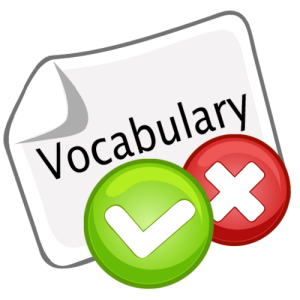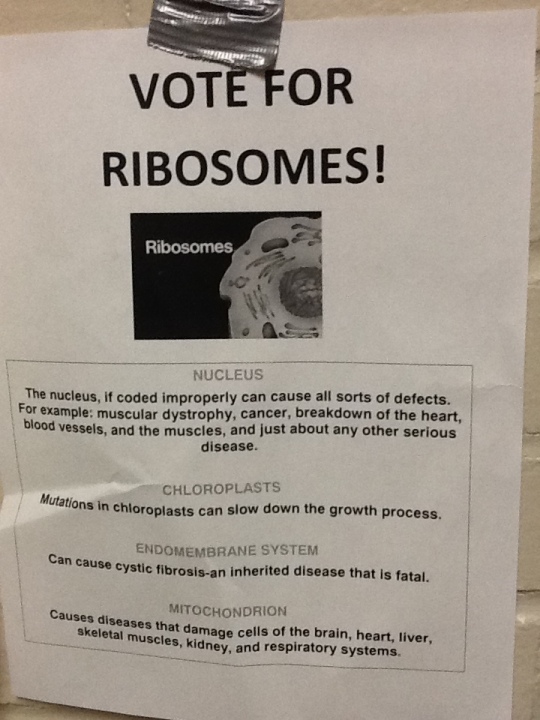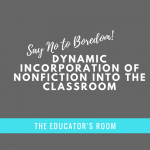 While there are whirlwind changes in education such as new evaluation programs, digital devices in school, or flipped classrooms, one element remains constant: vocabulary. In order for students to succeed, they must understand the content area vocabulary in each subject area.
While there are whirlwind changes in education such as new evaluation programs, digital devices in school, or flipped classrooms, one element remains constant: vocabulary. In order for students to succeed, they must understand the content area vocabulary in each subject area.
“Vocabulary knowledge is fundamental to reading comprehension; one cannot understand text without knowing what most of the words mean.”
(Nagy, 1988)
The Common Core Literacy Standards have dedicated an anchor standard to the acquisition to vocabulary:
CCSS.ELA-Literacy.CCRA.L.6 Acquire and use accurately a range of general academic and domain-specific words and phrases sufficient for reading, writing, speaking, and listening at the college and career readiness level; demonstrate independence in gathering vocabulary knowledge when encountering an unknown term important to comprehension or expression.
So what strategies work best? While there are familiar ways to teach vocabulary such as flashcards and word lists, every now and then there are the vocabulary lessons that are so effective, that they must be shared…like this political campaign using biology terms.
All month the 10th grade biology teacher centered a political campaign on vocabulary. The campaign immersed the entire school in domain specific words on the parts of a cell. Teams of students were assigned to promote each part of the cell (EX: nucleus, endomembrane system, chloroplasts, mitochondria) for a political election designed to let students determine the most important member of the cell. Students made posters that hung in the hallways, and each poster featured characteristics and functions of the cell’s “candidate.” The posters were filled with content area vocabulary; there were explanations with diagrams or pictures.
For the first week, the campaign posters for different parts of the cell were explanatory in nature:
- Do you enjoy moving, growing, breathing? Vote for the Mitochondria!
- Chloroplast: Makes your green last! Carry out Photosynthesis!
- Let’s assemble or die! Vote for Ribosomes or go home!


The final week was dedicated to a “smear” campaign. Additional information was added to posters; opposing candidates countered the claims on posters with even more content area vocabulary:
- Algae blooms? They are caused by pollution! Look in the mirror! It’s not the chloroplast’s fault
- Don’t vote for the mitochondria: They cause heart disease, diabetes, and cancer? Why vote for something that is bad?
- Ribosome: Subject to mutation and damage that can cause illness
- The Nucleus: if coded improperly can cause all sorts of defects
- The mitochondria causes stupidity and mental disorders. The nucleus knows you’re smart and will support you through everything.


Wall space became a premium. Attack ads increased the amount of information and featured even more content-area vocabulary. The stairwell going down to the middle school wing was a cluttered word wall.
Finally, election day arrived. To ensure there would be no favoritism, the students in 7th grade were selected to vote on their choice of the most important part of the cell. They had read the posters and become familiar with each of the candidates. They knew the strengths of each part of the cell. They knew the weaknesses of each part of the cell. They knew how each candidate functioned in the cell. They could separate the facts and the hype. The 10th grade waited to hear the results of their campaign.
Who did they vote for?
The Chloroplast.
Why?
Because of its contributions to plant life?
Because of photosynthesis?
Because it synthesizes fatty acids?
No….Because, “The poster had green glitter that was pretty.”
Apparently, campaigns for the most important member of the cell do not differ that much from real political campaigns.
Even with all that domain specific language…bling wins.







Leave a comment